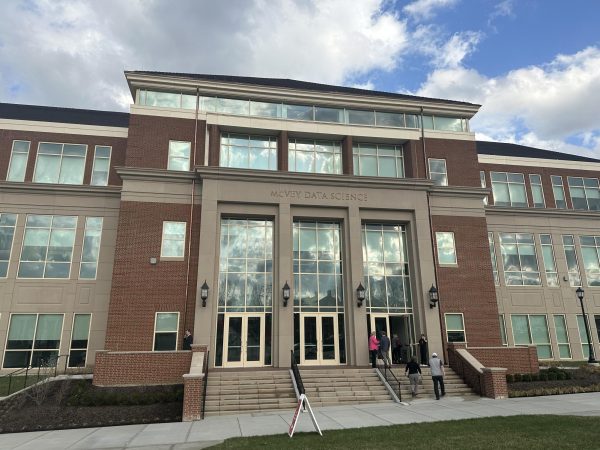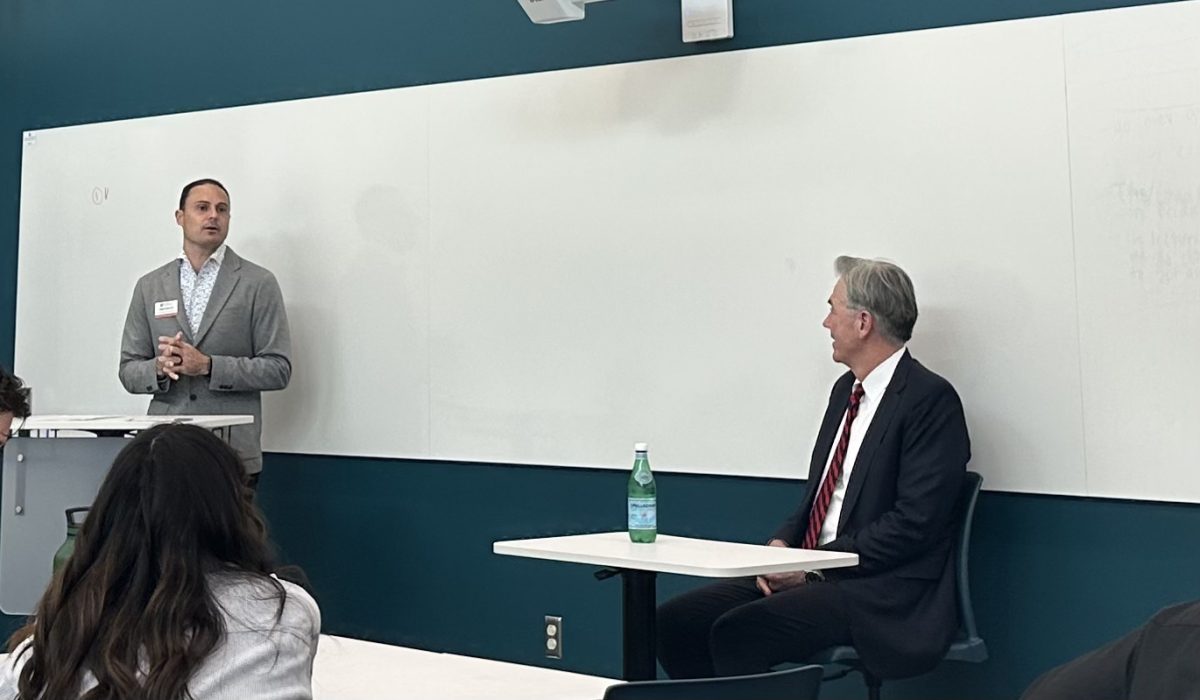The former general manager of the Oakland Athletics walked into a room full of Miami University students. Most of the students were aware of the near-legendary status of their guest before he even introduced himself.
“Did I tell you guys I know Brad Pitt?”
Billy Beane spoke at Miami University on March 14 as a part of the grand opening of the new Richard McVey Data Science building. Beane is most known for being the subject of the 2001 novel “Moneyball,” which was then adapted into a film starring Brad Pitt.
“I like to think I made data cool,” said Beane. His revolutionary ideas about how to evaluate baseball players using data became the focus of both the novel and the film. In his 25 years as Oakland’s baseball decision-maker, from 1997 to 2022, the Athletics went to the playoffs eleven times, despite often having one of the lowest payrolls in baseball.
Beane participated in a small Q&A session, mediated by Adam Beissel, a professor in Miami’s Sport Leadership and Management Department. Students asked about Beane’s experience transitioning from player to executive, his perspective on the growth of sports analytics, and his growing interest in European soccer.
Because of the commercial success of “Moneyball,” Beane is often credited with the rise of sports data analytics, especially in baseball. He said that his teams in the 2000’s benefited because the data collection process was a “Wild West.”
They lost this advantage in 2015 with the introduction of baseball’s premiere data-tracking software, Statcast. Every MLB team now has the same access to all major league baseball data, said Beane.
“The difference maker now is how you use that data, and who you hire to use that data,” said Beane. “The rush became hiring the best and the brightest to build proprietary player evaluation models.”
Over the past half-decade, Beane has worked as an advisor for Dutch soccer club AZ Alkmaar, as well as being involved with AC Milan (Italy), Toulouse (France) and Barnsley (England).
He said there is more opportunity to leverage data in European sports than there is in the US because European soccer uses a free market transfer system under which the clubs can sign any player, for a fee, regardless of contract status.

Beane said he was proud to be part of a movement that broke up the “old boys club” in baseball’s front office. Before the “Moneyball” movement, most of baseball’s executives were former players. He said that opening the door for sports analytics students to work in baseball was “The best thing that came out of the book.”
The Q&A session was part of the grand opening for the new McVey Data Science building, named for Richard McVey, chairman of MarketAxess, an electronic trading platform for corporate bonds. McVey donated $20 million toward the building’s construction.
“If they ever made a movie about MarketAxess, Brad Pitt would be an excellent choice to play me,” joked McVey, 64, during his remarks in front of a live audience at the XR stage within the building. His $20 million donation was a major reason the construction of the building was possible.
Miami president Gregory Crawford said the $58 million building was designed with the intention to “build a space to inspire creativity and innovation.”
“We wanted to introduce our students to the best technology in the world,” said Crawford.








